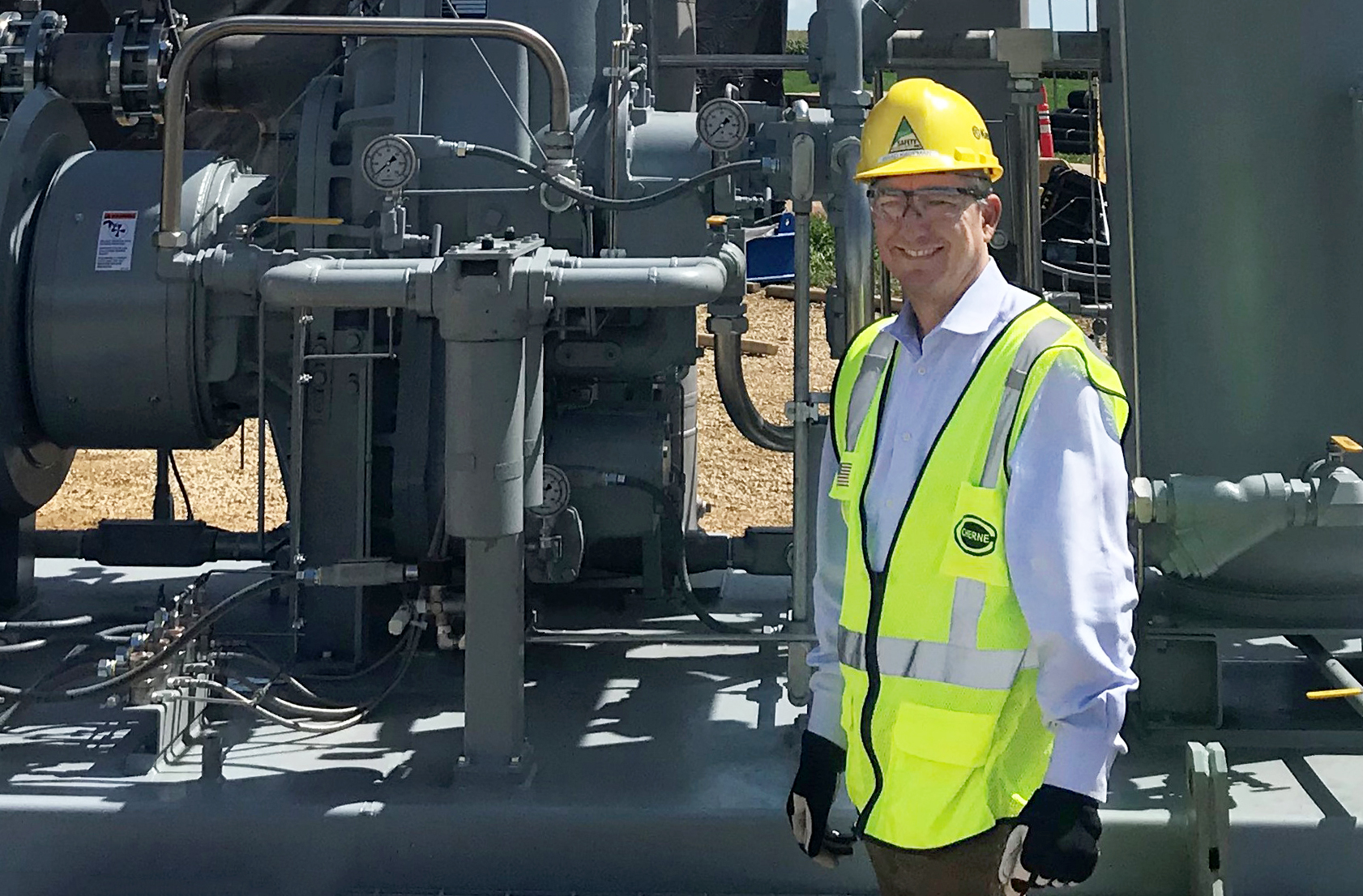5 Questions With Distinguished Alumnus Brad Kaufman

Brad Kaufman
Brad Kaufman (Construction Management, ’88) discovered his love for construction during summers working for a small Bay Area company and aspired to do more than frame houses and dig ditches. Today, he is senior vice president for Kiewit Energy Group, one of the largest and most respected construction and engineering organizations in North America. After starting his career with Kiewit in 1988, he now has executive responsibilities for oil, gas, and chemical projects across the United States, Canada, and Australia. Kaufman is one of eight distinguished alumni to be honored by the University this fall, and he spoke with us to reflect on his success, his career, and his Chico Experience.
What professors made a difference for you?
We had a wonderful group of experienced, industry-leading faculty—Rovane Younger, Bart Bartholomew, William Mack Reynolds, and James O’Bannon. In many cases, they were executives or had their own companies, and it blew me away that they came back to teach. Every one of the professors came with such vast experience and that’s what made the program special. It wasn’t, “Let’s read this book and learn about construction.” It was, “Let me tell you how this is really addressed out in the real world.” I see a lot of college programs these days as we recruit, and I look back on the quality and experience of the professors I had and I don’t see that anywhere else today.
What has been the most rewarding part of your career so far?
The variety of projects and traveling all over the world has been rewarding, but really, construction engineering is a people business. I enjoy the quality of the people you meet and get to work with, both within our company and partners with other companies. And when you go all over the world, you are still dealing with construction people, and we are kind of a rare breed. You can go to Australia and you are working with the same kind of guy you are working with in a project in California. Chico did a great job in teaching the social aspect. You can go anywhere and get just as good of an education in a physics class, calculus class, or construction class. But not everywhere can you go and get that education mixed with the social aspect and the softer skills. Chico brings all of that and puts it all together.
What advice would you give your graduating self?
You have to go where the work is; the work doesn’t come to you. Oftentimes that means moving or extensive travel, and that’s tough. It sounds glamorous at first, but it’s certainly tough when you are raising a young family and you are told, “We have a project for you to run,” and it’s either across the state or across the country or in Canada or Mexico or Australia. The toughest part is taking those opportunities and grasping on to them. No matter what it is, put your heart and soul into it. Also, you need to get as diverse of a background as possible and not try to specialize too early in your career. I tell young people, “Think of your career as a pyramid.” You want the broadest base you can. In the first five or 10 years, don’t turn down an assignment because it’s different or something you don’t like. You don’t know what you like, and you might fall in love with it. And you have plenty of time to figure it out.
What is the greatest infrastructure challenge facing us today?
In almost 31 years in this business, I have never seen the amount of work that’s going on right now. All construction markets—highways, bridges, light industrial work, water and wastewater, and power, oil, and gas projects—are booming, and the challenge it creates is truly a lack of skilled labor. We face that every day. I was with a client recently and they want to build a large oil and gas project in Oregon and it would encompass 2,500 to 3,000 workers, and they are just not available. There are not enough craft construction workers in the United States to build the work we have in front of us, and that causes a lot of problems. It’s serious. All markets are booming, and that’s great news and exciting for someone coming into the industry for the first time, but it brings labor and material shortages. That’s probably not something you can teach well in schools.
What has been the most rewarding project of your career?
I think you always remember the first project you were in charge of because it is so scary in one aspect and it’s so challenging as you learn so much. There are small projects and really, really large projects I have been involved in, but the one that sticks out the most is a job right there in Oroville. We built a bridge on Highway 162 over the Feather River. I was 10 years out of school and it was the first project I was a manager on. I brought my wife and my two small kids, and my son got to go to kindergarten in Chico. What I really enjoyed about it is, 10 years after leaving Chico and seeing it as a student, coming back with a family and seeing the family side of Chico.


